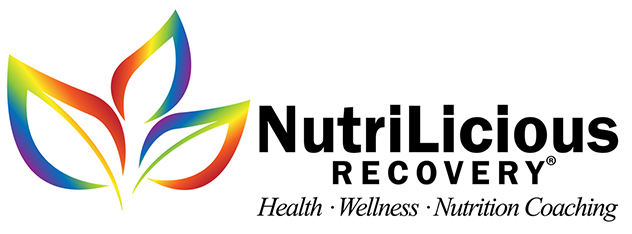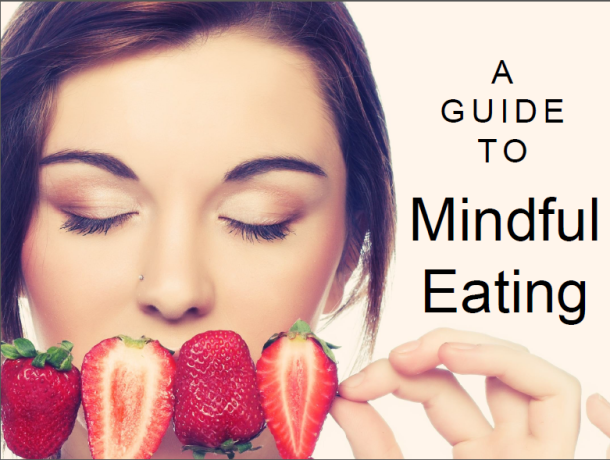
by dnshah | Oct 2, 2020 | Health and Wellness Tips, Stress Management, Virus
Maybe one of the best gifts that 2020 brings is the chance to slow down and reconnect with yourself to feel more in control of your life choices. Suddenly we are not in automatic drive mode, but in mindful acknowledgement that things are different… perhaps forever-more.
How do we navigate changes that COVID19 has effected around the country/world? There is no better time than now to ask the introspective questions of life and your value system.
- What’s really important to you – the long-haul perspective? We all are bio-individual in terms of our DNA and how it responds to individual conditions. It’s no surprise then that we all may have different values and different priorities placed on them. Reflecting on our values can mitigate some stress effects as we finalize on what means most to us at this time in our lives. If you want to better understand your values, you can look at these VALUES flashcards, and select the five that are most important to you. These are your core values.
- What’s worked well for you in the past in dealing with stress? We all have different histories, and avenues we’ve already explored with stress busters. Maybe you already have ideas on how to calm the inner fires that create anxiety within. The successful approaches of yesterday may have some positive effects as anti-stress agents, and you won’t know until you try. Self-reflect a bit on any strategy that didn’t work well, and pass it so you can focus on what does work well. A number of ideas come to mind for calming that inner spirit within. These include breathwork, meditation, a fun activity, a brisk walk, a hot tub-soak with fragrant candles around, or indulging in my favorite cup of tea.
- Where are your resources? Spend a minute understanding your resources today – Where you can lean on to get compassion and empathy. Brainstorm on the full gamut of resources at your disposal. Have you socially closed yourself off because of COVID19? Perhaps its time to open those channels in a safe responsible way. We know more about COVID19 today than we did in March; so heed the science, and take some steps to live life socially again, with caution. Don’t sit in the sidelines, afraid and stressed; that can do more harm than good mentally.
- What are your strengths? If you aren’t sure, take a free strengths assessment here, and then dedicate a notebook to journal your thoughts, wisdom, and strategies to alter your future with a mindset that is open to creativity and not encumbered with stress. Knowing you have strengths, resources, and past successes can guide you to tomorrow’s success with stress management.
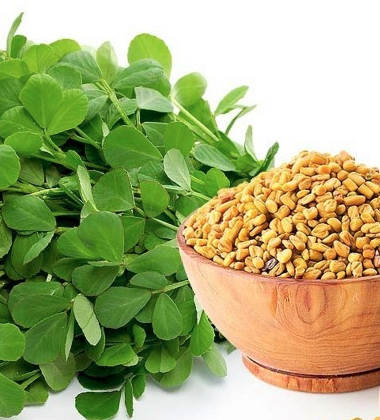
by dnshah | Sep 1, 2020 | Diet and Weight Loss, Health and Wellness Tips
Fitness enthusiasts are talking about fenugreek after a June, 2020 study found that fenugreek increased strength, lean muscle mass, endurance, body composition, functional threshold power, and sex hormones in 8-weeks. As an East-Indian I can tell you fenugreek is not “new” – in fact it is an ancient spice (with ties to India, Egypt, China, Africa, & Greece) getting a new spotlight.
I have seen health-conscious people in India water-soak it overnight and swallow it raw the next morning boasting a general set of health benefits, which includes strength, endurance, and increased sexual desire. The placebo-controlled, double-blind study followed 138 men over 8-weeks and analyzed that the fenugreek groups improved muscle size & strength while reducing fat. It also showed increase of sexual hormones. Other studies have shown promise for fenugreek to be used by men and women for establishing hormonal balance post-menopause or andropause (male menopause), or effective control of type 2 diabetes.
I use fenugreek seeds and leaves for cooking. It has a sweet, nutty, and slightly bitter flavor, and is very aromatic. My knowledge of fenugreek seeds was piqued after the birth of my daughter, when my elder female relatives told me it would increase breast milk production. In fact a 2005 study and a 2011 study confirm that fenugreek does effect breast milk production, and may improve colic symptoms in nursing babies.
Some ways to incorporate fenugreek seeds or leaves are:
- Lactation herbal tea
- Garam Masala – a powered collection of super spices to add to all your meals
- Methi Dal – an Indian dal stew
- Methi Paneer – Paneer curry with leaves of spinach and fenugreek
- Sprouted fenugreek salad
- Methi Thepla – Gujarati roti (flour tortilla) with both powdered seeds and leaves. I make mine gluten-free.
You can purchase your fenugreek from local Indian stores in your city, or order online.

by dnshah | Sep 1, 2020 | Age Defying, Diet and Weight Loss, Health and Wellness Tips, Obesity
-with sugar! In the United States, 88 million adults—more than 1 in 3—have prediabetes, but more than 84% don’t know they have it (CDC). Diabetes is the 7th leading cause of death in the US, and it’s also the #1 cause of kidney failure, lower-limb amputations, and adult blindness.
Classis symptoms include
- Urinate a lot (often at night)
- Are very thirsty
- Lose weight without trying
- Are very hungry
- Have blurry vision
- Have numb or tingling hands/fee
- Feel very tired
- Have very dry skin
- Have sores that heal slowly
- Have more infections than usual
If you feel like you could be in a high-risk group for pre-diabetes, your health care practitioner can do blood tests to get more information:
- An A1C test measures average blood sugar level over the past few months
- A fasting blood sugar test measures blood sugar after an overnight fast
- An oral glucose screening test measures blood sugar after drinking glucose
People that are higher risk for diabetes (Types 1 & 2, pre-diabetes, & gestational) have multiple risk factors below:
- Overweight
- Older (> 45 years for prediabetes, > 25 years for gestational)
- Family history of diabetes or gestational diabetes
- Are physically not as active (< 3x/week)
- Have birthed a baby weighing more than 9lb
- African American, Hispanic/Latino American, American Indian, Alaska Native, Pacific Islander, or Asian American
There are people suffering every day, and the numbers keep rising. Please join me in breaking up with sugar – it doesn’t have to be a radical break-up with significant withdrawals… plan for a gentle reduction and substituting those decadent desserts into less sugar-filled ones. It’s all about progress, and we really have to start somewhere… If you want help with meal planning and satisfying your sugar cravings, give me a call and let’s see how we can co-author your breakup with sugar!

by dnshah | Sep 1, 2020 | Health and Wellness Tips
Based on www.nutritionfacts.org blog
I am not proposing that women stop shaving their armpits. I am throwing the spotlight on armpit shaving AND then using toiletries – like antiperspirants – which have chemicals in them which is directly absorbed into the body. I also want to spotlight antiperspirants that DON’T use harmful chemicals like aluminum in them.
Ladies, when you shave your armpits – sometimes you also create skin scrapes and cuts too. While chemicals are only minutely absorbed through outer skin layers; when chemicals are put on skin with cuts and scrapes, there is an increased absorption through that skin. The FDA and the European safety authorities advise against using aluminum antiperspirant/deodorants on damaged or broken skin.
There is now a theory to explain why most breast cancers occur in the upper outer corners of the breast. The theory is that aluminum-containing anti-perspirants/deodorants are being used after armpit shaving – AND the absorption of aluminum is starting the process of cancer cell growth in the breasts. The theory explains why an unproportionate number of breast cancers are found in the upper outer quadrants (near armpits) AND aligns with US antiperspirant /deodorant sales. It also aligns with observations from mastectomy breast tissue. Aluminum has pro-estrogenic effects on breast cancer cells, so it could be the reason for tumor initiation.
While research and studies learn more and reach final conclusions, it seems a logical choice to switch out your anti-perspirant/deodorant to one that doesn’t contain aluminum. And there are many to choose from (Harper’s Bazaar: Best Aluminum-Free Deodorants).
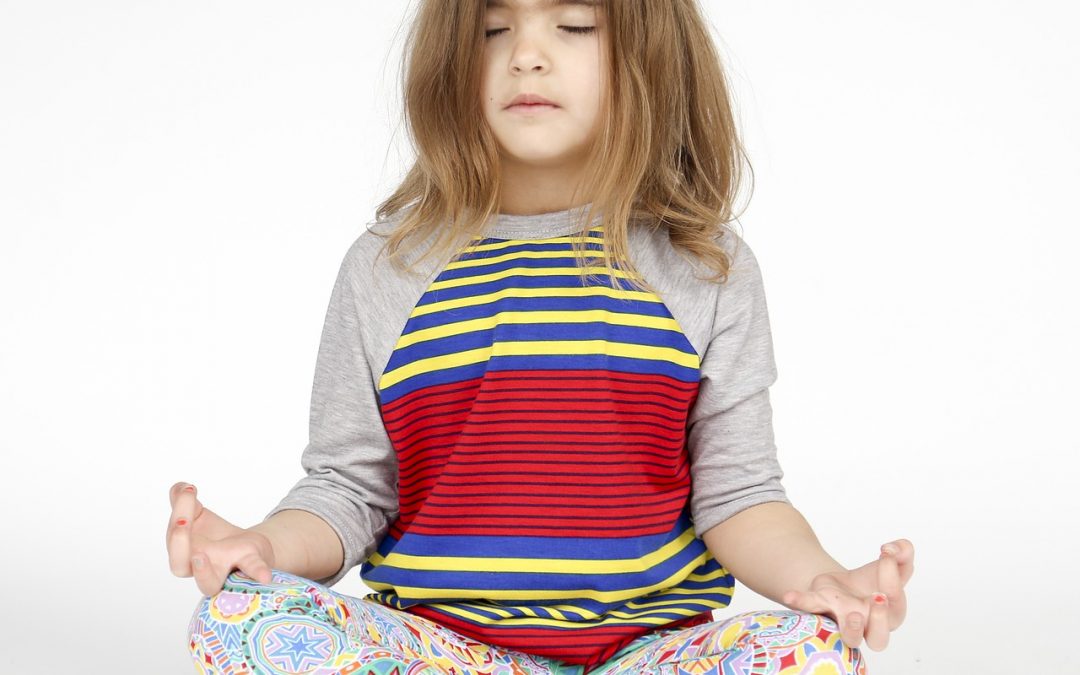
by dnshah | Sep 1, 2020 | Health and Wellness Tips
Since March, 2020 we’ve all been adjusting to our new normal. Our children are learning about our new normal – asking questions and searching for answers on why their lives are changing. It’s a challenge to explain the loss of the elementary school face-to-face, final ceremonies of completing middle school, highlights of high school senior years, graduations, or missing face-to-face social events.
It’s a stressful society we live in, and that stress is reaching our children at younger ages too. We know that QoL depends on reducing unnecessary stress. QoL is quality of life based upon mental, physical, emotional, and spiritual wellness.
The one thing that I know helps with stress management is increasing mindfulness. And this thing we call mindfulness also helps children cope with increasing stress. What does mindfulness look like? Pretty much the same as it does for adults!
A pilot study has looked at increasing mindfulness in children by adding group yoga classes and meditation. Improvements were demonstrated in 40-minute sessions which included breathing exercises, guided relaxation, and age-appropriate poses.
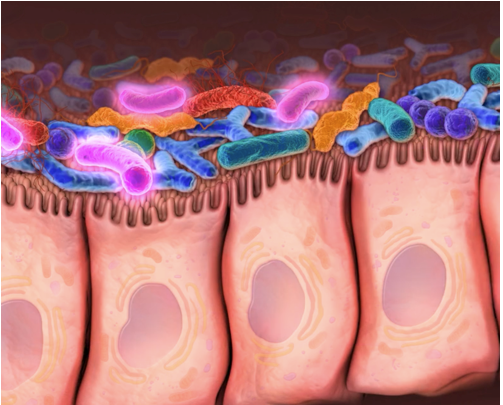
by dnshah | Jul 28, 2020 | Age Defying, Health and Wellness Tips, Virus
We have over 100 trillion bacteria in our gut microbiome. Our microbiome impacts a majority of our immune system. I’ve written previously about eating for our gut bacteria (Balancing Trillions of Friends), but it is vitally important to also promote diversity in our gut bacteria also.
Dysbiosis is an imbalance between the “good” and “bad” bacteria. Dysbiosis can happen from inadequate diet, lack of exercise, surgery, or antibiotic use. Adding prebiotics helps with dysbiosis. Prebiotics are food for the good bacteria. With prebiotics, the healthy bacteria can cultivate over time. Probiotics are actual bacteria strains. Each can contain different genus, species, and strains. Since we know that diversity is important, the more the merrier! But if you buy a particular probiotic bottle with a fixed number of strains, and you take it daily. It may not help as much as if you purchase 2-3 different probiotics containing different genus, species, and strains. Then you can alternate what you are providing the microbiome. It’s more efficient at promoting diversity.
To learn more about probiotics check out the Metagenics Video on probiotics. Contact your local health & wellness coach for more information!

